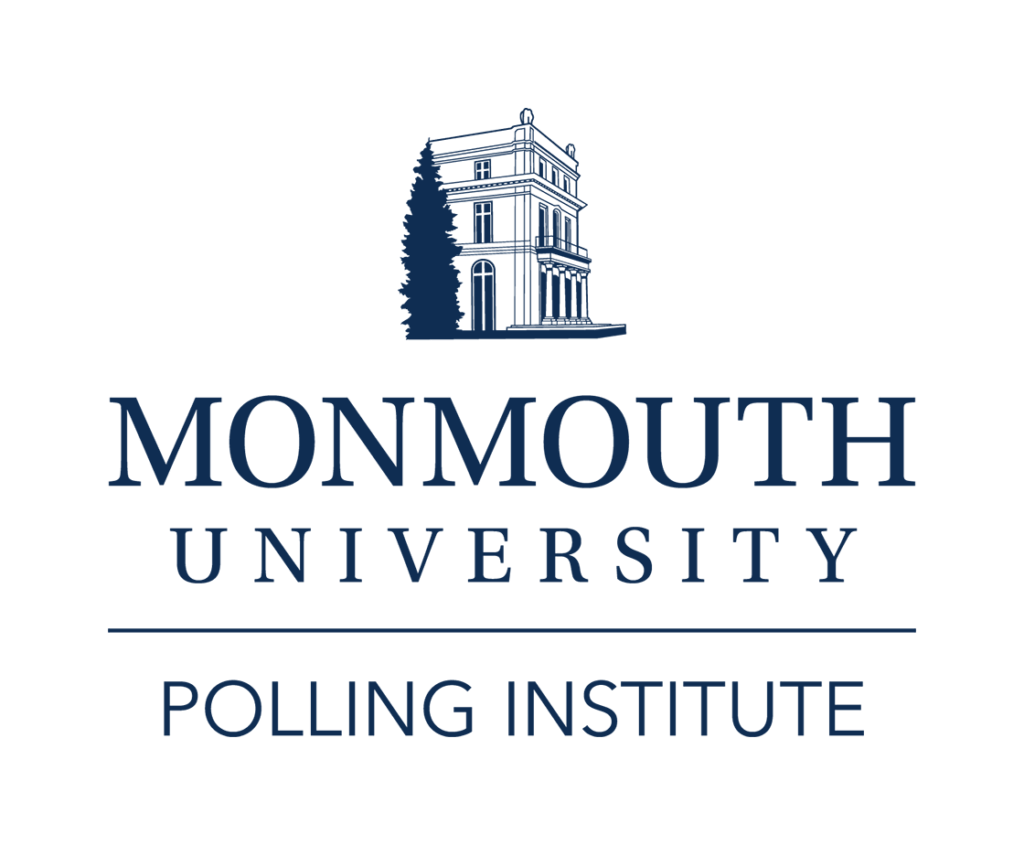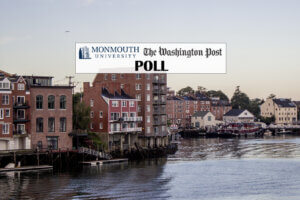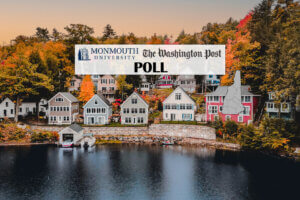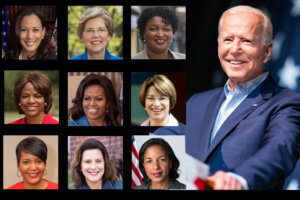West Long Branch, NJ – Donald Trump holds a sizable edge in the Monmouth University Poll of likely New Hampshire Republican presidential primary voters, with a 2-to-1 edge over his nearest rival Jeb Bush. When second choices are taken into account, Trump takes votes from nearly all of his opponents, but appears to hurt Chris Christie, Scott Walker, and Ted Cruz the most.
One-quarter of likely GOP primary voters in New Hampshire currently support Donald Trump (24%), with Jeb Bush placing second at 12%. Rounding out the top ten are newly announced candidate John Kasich (7%), Scott Walker (7%), Marco Rubio (6%), Ben Carson (5%), Rand Paul (5%), Chris Christie (4%), Carly Fiorina (3%) and Ted Cruz (3%). Mike Huckabee, Bobby Jindal, and George Pataki each get 2%, while Rick Perry, Rick Santorum, Lindsey Graham, and Jim Gilmore earn 1% or less.. Another 14% of likely primary voters are undecided.
“The controversy over comments about John McCain’s war service do not appear to have slowed the Trump steamroller,” said Patrick Murray, director of the independent Monmouth University Polling Institute in West Long Branch, NJ. The Monmouth poll is the first to be conducted in New Hampshire entirely after Trump’s July 18 comments.
Support among key groups of likely primary voters includes:
- Party – New Hampshire’s open primary system allows undeclared voters to participate in party primaries. Trump does better among registered independents and new voters (29%) likely to go to the polls in February than he does among already registered Republicans (21%).
- Ideology – Trump does especially well with very conservative voters (36%), far outpacing Walker (10%) and Cruz (9%) among this group. Somewhat conservative voters prefer Trump (22%), followed by Carson (10%) and Walker (9%). Moderate to liberal voters choose Bush (22%) and Trump (18%) as their top tier.
- Tea Party – Tea Party supporters back Trump (35%), with Walker (13%) a distant second. Non-Tea Party voters split their support between Trump (18%) and Bush (18%), followed by Kasich (8%).
- Age – Trump (30%) has a clear lead over Paul (12%) and Bush (10%) among voters under 50 years old. Those age 50 and older prefer Trump (21%), Bush (13%), Walker (9%), and Kasich (9%).
Voters were also asked to name a second choice and spread that support chiefly among Bush (10%), Walker (10%), Christie (8%), Rubio (8%), and Trump (8%). If Trump was not in the race, more than 4-in-10 of his voters say they would switch their support to one of three candidates – Christie (15%), Walker (14%), or Cruz (14%). This could equate to another 3 or 4 percentage points in those candidates’ overall support. Paul and Bush would pick up a couple of points if Trump was out of the race, while Huckabee, Fiorina, Rubio, Kasich, and Santorum might see a bump of one percentage point based on the second choice preferences of current Trump supporters.
About 1-in-7 (15%) likely voters in the New Hampshire GOP primary report having met or seen one of the candidates in person. About half that number (7%) say they have seen Chris Christie. No more than 3% name any of the other candidates.
“Despite spending much of his time there, Christie does much better as a second choice rather than the first pick in New Hampshire. It seems that Trump has stolen the New Jersey governor’s ‘telling it like it is’ thunder,” said Murray.
Looking at the fundamental strengths of the candidates, New Hampshire primary voters render a split decision on Donald Trump – 47% hold a favorable view and 44% have an unfavorable one. This result is slightly better than the 40% positive to 41% negative rating he received from Republicans across the country two weeks ago in a national Monmouth University Poll, but with higher negatives than the 47% to 35% rating he received from Iowa caucusgoers last week. Trump’s Granite State primary voter favorable rating is similar among self-identified Republicans (47%) and independents (46%), but is much higher among very conservative voters (66%) than somewhat conservative (46%) and moderate to liberal (35%) voters. He also has higher ratings among men (53%) than women (40%).
The best net positive ratings in the field go to Scott Walker (57% favorable to 16% unfavorable), Marco Rubio (53% to 22%), Carly Fiorina (47% to 17%), John Kasich (45% to 15%), and Ben Carson (45% to 15%). Fiorina and Kasich do much better in New Hampshire than among Republicans nationally – Kasich had a 19% to 16% national rating two weeks ago and Fiorina’s was 30% to 18%.
“John Kasich says he got into this race because he feels New Hampshire is winnable. It’s too early to assess that likelihood, but he certainly has made an impact there since his announcement,” said Murray.
Other candidates receiving a net positive rating include Jeb Bush (47% favorable to 37% unfavorable), Ted Cruz (44% to 32%), Rand Paul (43% to 31%), Mike Huckabee (42% to 33%), Chris Christie (42% to 40%), and Bobby Jindal (34% to 22%). Cruz and Huckabee do worse in New Hampshire than nationally – Cruz was at 48% to 16% among Republican voters across the country two weeks ago and Huckabee was at 53% to 23%. Christie, however, gets higher ratings from New Hampshire GOP voters than he does nationally (25% to 45%).
The remaining candidates earn net negative ratings from Granite State primary voters, including Rick Perry (33% favorable to 38% unfavorable), Rick Santorum (29% to 35%), George Pataki (20% to 39%), Lindsey Graham (20% to 42%), and Jim Gilmore (4% to 19%).
Issues in the 2016 GOP Nomination Contest
When asked to choose the most important issue in deciding who they will support for the GOP nomination, New Hampshire primary voters select national security (25%) and the economy (23%) as their top concerns, followed by taxes and government spending (20%). Immigration (13%), social issues (8%) and education (3%) are seen as less important factors in the nomination contest. Voters who identify themselves as Republican (30%) partisans are more likely than self-identified independents (20%) to name national security as their top concern.
Voters were also presented with the opportunity to choose a second choice among these issues. When both the first and second choices are combined, the economy (49%) and national security (48%) remain on top. About 1-in-3 name taxes and spending (34%) and immigration (30%). Social issues (14%) and education (8%) trail in importance to voters.
The poll also found that New Hampshire primary voters are divided on how this year’s large field of presidential contenders might impact the Republican Party. About one third (32%) say the number of candidates in the race is good for the party while 43% say it is bad for the party. Another 22% say it has no impact.
The Monmouth University Poll was conducted by telephone from July 23 to 26, 2015 with 467 New Hampshire voters likely to vote in the Republican presidential primary. This sample has a margin of error of ± 4.5 percent. The poll was conducted by the Monmouth University Polling Institute in West Long Branch, NJ.
DATA TABLES
The questions referred to in this release are as follows:
(* Some columns may not add to 100% due to rounding.)
1/2. Who would you support if the presidential primary was being held today and the candidates for the Republican nomination were – [NAMES WERE ROTATED]
And who would be your second choice?
| FIRST CHOICE | SECOND CHOICE | |
| Jeb Bush | 12% | 10% |
| Ben Carson | 5% | 2% |
| Chris Christie | 4% | 8% |
| Ted Cruz | 3% | 5% |
| Carly Fiorina | 3% | 4% |
| Jim Gilmore | <1% | 0% |
| Lindsey Graham | <1% | 1% |
| Mike Huckabee | 2% | 3% |
| Bobby Jindal | 2% | 1% |
| John Kasich | 7% | 5% |
| George Pataki | 2% | 2% |
| Rand Paul | 5% | 4% |
| Rick Perry | 1% | 1% |
| Marco Rubio | 6% | 8% |
| Rick Santorum | 1% | 2% |
| Donald Trump | 24% | 8% |
| Scott Walker | 7% | 10% |
| (VOL) Other | 0% | 1% |
| (VOL) No one | n/a | 8% |
| (VOL) Undecided | 14% | 18% |
3. I’m going to read you a few names of people who are running for president in 2016. Please tell me if your general impression of each is favorable or unfavorable, or if you don’t really have an opinion. [NAMES WERE ROTATED]
| Favorable | Unfavorable | No opinion | |
| Former Florida Governor Jeb Bush | 47% | 37% | 16% |
| Commentator and Doctor Ben Carson | 45% | 15% | 40% |
| New Jersey Governor Chris Christie | 42% | 40% | 19% |
| Texas Senator Ted Cruz | 44% | 32% | 24% |
| Businesswoman Carly Fiorina | 47% | 17% | 36% |
| Former Virginia Governor Jim Gilmore | 4% | 19% | 77% |
| South Carolina Senator Lindsey Graham | 20% | 42% | 38% |
| Former Arkansas Governor Mike Huckabee | 42% | 33% | 25% |
| Louisiana Governor Bobby Jindal | 34% | 22% | 44% |
| Ohio Governor John Kasich | 45% | 15% | 40% |
| Former New York Governor George Pataki | 20% | 39% | 41% |
| Kentucky Senator Rand Paul | 43% | 31% | 25% |
| Former Texas Governor Rick Perry | 33% | 38% | 30% |
| Florida Senator Marco Rubio | 53% | 22% | 25% |
| Former Pennsylvania Senator Rick Santorum | 29% | 35% | 36% |
| Businessman Donald Trump | 47% | 44% | 9% |
| Wisconsin Governor Scott Walker | 57% | 16% | 27% |
4. Do you think the number of candidates who are currently running for the Republican nomination is good for the party, is bad for the party, or does it have no impact?
| TOTAL | |
| Good for the party | 32% |
| Bad for the party | 43% |
| No impact | 22% |
| (VOL) Don’t know | 3% |
5/6. Which of the following issues is the most important to you in deciding who to support for the Republican nomination? [ITEMS WERE ROTATED]
And which is the second most important?
| FIRST CHOICE | SECOND CHOICE | Combined 1st & 2nd | |
| Immigration | 13% | 17% | 30% |
| The economy | 23% | 26% | 49% |
| National security | 25% | 23% | 48% |
| Social issues like abortion and same-sex marriage | 8% | 6% | 14% |
| Taxes and government spending | 20% | 14% | 34% |
| Education and the Common Core | 3% | 5% | 8% |
| (VOL) All equally important | 6% | 1% | n/a |
| (VOL) Other | 0% | 0% | n/a |
| (VOL) Don’t know | 1% | 1% | n/a |
7. Have you had the opportunity to meet or see any of the candidates for president in person, or not?
| TOTAL | |
| Yes | 15% |
| No | 85% |
| (VOL) Don’t know | 0% |
8. If YES: Which ones? [MULTIPLE RESPONSES ACCEPTED.]
| TOTAL | |
| Jeb Bush | 3% |
| Ben Carson | 3% |
| Chris Christie | 7% |
| Ted Cruz | 1% |
| Carly Fiorina | 3% |
| Jim Gilmore | 1% |
| Lindsey Graham | 2% |
| Mike Huckabee | 1% |
| Bobby Jindal | 2% |
| John Kasich | 3% |
| George Pataki | 1% |
| Rand Paul | 3% |
| Rick Perry | 2% |
| Marco Rubio | 3% |
| Rick Santorum | 1% |
| Donald Trump | 3% |
| Scott Walker | 2% |
The Monmouth University Poll was sponsored and conducted by the Monmouth University Polling Institute from July 23 to 26, 2015 with a statewide random sample of 467 New Hampshire voters drawn from a list of registered Republican and Independent voters who participated in a primary election in the past two election cycles or voted in both the 2012 and 2014 general elections, and indicate they will vote in the Republican presidential primary in February 2016. This was supplemented by a sample of non-voters who say they are likely to register and vote in the Republican primary. This includes 315 contacted by a live interviewer on a landline telephone and 152 contacted by a live interviewer on a cell phone, in English. Monmouth is responsible for all aspects of the survey design, data weighting and analysis. Final sample is weighted for age and gender based on state registration list information on the pool of voters who participate in primary elections. Data collection support provided by Braun Research (field) and Aristotle (voter list and non-voter sample). For results based on the total sample, one can say with 95% confidence that the error attributable to sampling has a maximum margin of plus or minus 4.5 percentage points (unadjusted for sample design). Sampling error can be larger for sub-groups (see table below). In addition to sampling error, one should bear in mind that question wording and practical difficulties in conducting surveys can introduce error or bias into the findings of opinion polls.
|
POLL DEMOGRAPHICS (weighted) | |||
| 65% Reg Rep | 53% Male | 9% 18-34 |
98% White, non-Hispanic |
| 26% Reg Ind | 47% Female | 23% 35-49 |
2% Other |
| 9% New voter | 39% 50-64 | ||
| 29% 65+ | |||
Click on pdf file link below for full methodology and results by key demographic groups.




